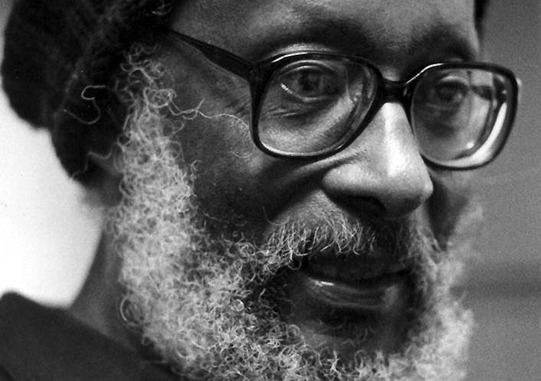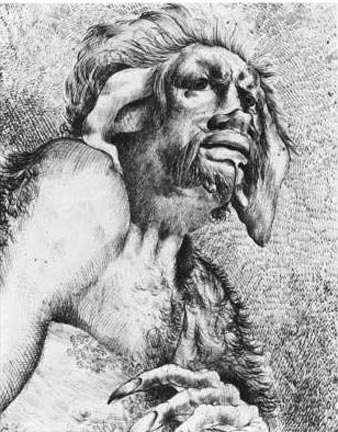You taught me language; and my profit on't
Is, I know how to curse. The red plague rid you
For learning me your language!
Shakespeare's Caliban, The Tempest 1.2.364-6
To build and develop this discussion to include postcolonial authors and theory, it is useful to consider the way that Caliban has been reimagined by major Caribbean authors. Kamau Brathwaite is a particularly powerful poet to study. He considers Caliban from a variety of angles: the musicality of Caliban's voice in Shakespeare's play (and what that might signify), cultural memory, and what he calls "nation language," which theorizes the politics of language itself.
for nat one a we shd response if prospero get
curse wid im own
curser
Brathwaite's Caliban, "Letter SycoraX" p. 107
- Brathwaite, Edward Kamau. “Caribbean Man in Space and Time.” Savacou: A Journal of the Caribbean Artists Movement 11-12 (1975): 1-11. [I assign this article for a homework presentation assignment]
- Brathwaite, Edward Kamau. "Caliban." The Arrivants (London: Oxford University Press, 1973): 191-195.
- Brathwaite, Kamau. "Letter SycoraX." Middle Passages (New York: New Directions Books, 1993): 95-116.
"Letter SycoraX" is a much harder poem, one that eschews standard English in favor of a Caribbean nation language. I've included the opening portion of the poem in the following slide show because the font is important to Brathwaite's conception of poetry, what he calls the Sycorax Video Style:
- Split students up into groups and have them "translate" Caliban's words into standard English. Then have students share the results of their translations with the whole class. This helps them to develop arguments about the poem's meaning through close-reading; however, this activity in itself is problematic, which leads to the second set of questions, something that is essential for teaching this poem.
- Discuss how this translation exercise is not and never could be adequate for understanding the poem. Discuss how the act of translation itself becomes an attempt to colonize the language of the poem's speaker, and consider if that puts us in the position of Prospero. Consider why it is important that this poem is presented as a letter to Caliban's mother, Sycorax. How and why does language become politicized in the poem?
- Consider the impact of the discussion of language on character. Why does Caliban, of all the possible figures in the English canon, speak/write in what Brathwaite calls a “nation language”? How does that create a different kind of character than the Caliban in Shakespeare’s play, whose language more closely resembles Prospero’s?
When my students first came to class after reading the opening pages of the poem, they complained loudly about how hard the poem was; however, after our discussions got them more interested in the idea that language itself can both record cultural memory and resist power structures, they came around to loving this poem.
Brathwaite is a Professor Emeritus at NYU, and one of my pluckier students emailed him to tell him how much she liked his poetry. He actually wrote her back a letter of thanks! So he's not only a wonderful writer but also a lovely person.


 RSS Feed
RSS Feed